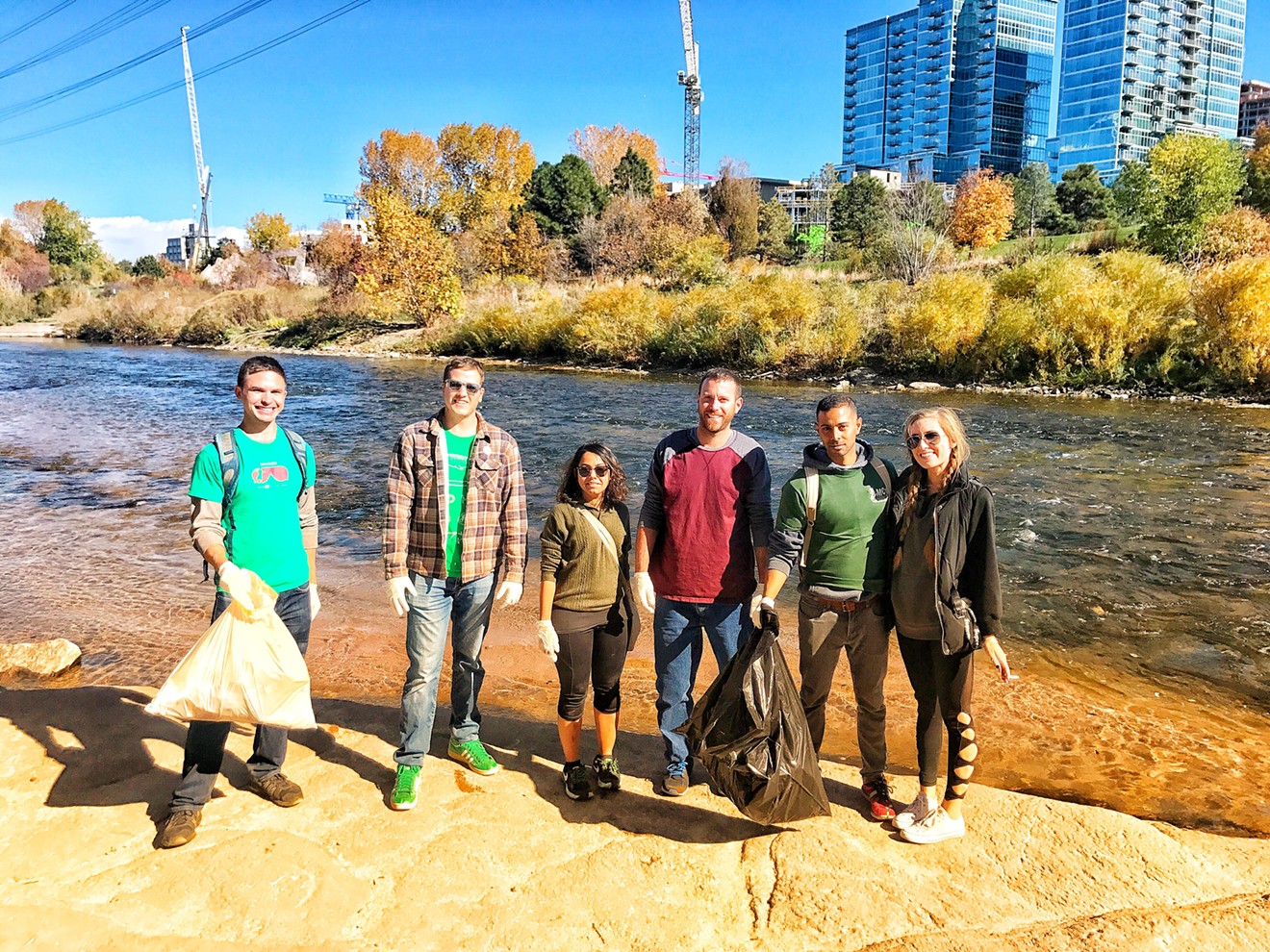Since their first meeting in September, members of the Denver Millennial Political Action Coalition feel they have already achieved more in just two months — with almost no money and only a handful of people — than some nonprofits and many politicians could hope to do under the same circumstances.
On the Denver MPAC Facebook page, where the group operates virtually between bi-weekly public meetings and a slate of projects, it describes itself as a "nonpartisan political action group dedicated to helping Denver's community through zero & low-cost activism-based initiatives."
While the group may not have much money, it's fueled by plenty of frustration with the limits of the traditional political process. "The dichotomous political party that we've had for generations hasn't really served anyone positively," says Alejandro Vera, a lawyer and the co-founder of Denver MPAC. "When one is in power, the other one is visibly upset."
Vera isn't suggesting that millennials shouldn't vote or protest. But the former only happens on a major level every couple of years, he points out, and the latter is always in opposition or reaction to something. Meanwhile, there are common concerns to address. "People tend to care about the same things," he says. "They care about their community. No matter how you feel about political issues, you want your community to be better."
Vera's day job working for Medicaid had him looking for ways to get things done without dealing with all the required red tape. "If you need money to operate a program, it's a long political process," he explains. "So I kind of drew on my own life experience as a millennial who doesn't have much. You know, just a little bit of scratch. I started thinking creatively about things I could do, work I could give myself."
And he began looking for incentives for people to work with him on projects, such as offering data to a research scientist in exchange for analysis. The scientist gets a paper; Vera gets proof of concept. Bundle enough deals like that together, and a project starts to take shape.
Vera says he tried this low-to-zero-cost approach on a few projects before he felt like he was really on to something. "It's kind of a recipe to taste," he explains. "You don't know how to make something, but you just try it out."
After getting positive feedback at work and a brief attempt at spinning the idea into a side gig as an efficiency consultant, Vera met Joe Miyaki at a local Toastmasters meeting, and they decided to start Denver MPAC. "We were just talking politics," Vera says. "You know, people are dispirited. They feel like their actions don't mean anything. What vehicle can you give yourself to feel like you're actually participating in the political process?"
Lindsey Rasmussen was asking herself a similar question this fall while scrolling through events on Facebook, and came across the page for the just-founded Denver MPAC. "So I just showed up at the first meeting," says Rasmussen.
She became the group's director. "We realized that our weaknesses were social media and marketing," Vera says. "And that's what we're looking for. People who just want to do something."
In the meantime, he and Miyaki were brainstorming ideas for things the group could do. After just one more meeting, they'd come up with a test project: cleaning up a one-mile stretch of the Platte River at the end of October. "Six of us showed up, and that's kind of become our core group," Ramussen says.
While they were cleaning up the Platte, they discovered that there weren't any recycling bins there. Now Denver MPAC is talking with the Denver Department of Parks and Recreation about setting up a pilot program to see if bins would be both feasible and useful. "We are doing everything to get the city to say yes," says Rasmussen.
If Denver officials agree, the group would provide the bins, fill the bins with trash, and later recycle the contents, then collect data to share with the city and other interested parties.
That's the basic plan for all of Denver MPAC's actions: Start with a small, low-cost project as a means to get into an area or community; use that as an opportunity to assess need, build support and collect data; then move on from there. The group hopes to do four more projects before the end of January. "We want anybody and everybody with ideas," says Vera.
Denver MPAC's next meeting is set for 6 p.m. Wednesday, November 29, at Fluid Coffee Bar, 501 East 19th Avenue. Go to the group's Facebook page for more information.
[
{
"name": "Air - MediumRectangle - Inline Content - Mobile Display Size",
"component": "12017618",
"insertPoint": "2",
"requiredCountToDisplay": "2"
},{
"name": "Editor Picks",
"component": "17242653",
"insertPoint": "4",
"requiredCountToDisplay": "1"
},{
"name": "Inline Links",
"component": "18838239",
"insertPoint": "8th",
"startingPoint": 8,
"requiredCountToDisplay": "7",
"maxInsertions": 25
},{
"name": "Air - MediumRectangle - Combo - Inline Content",
"component": "17261320",
"insertPoint": "8th",
"startingPoint": 8,
"requiredCountToDisplay": "7",
"maxInsertions": 25
},{
"name": "Inline Links",
"component": "18838239",
"insertPoint": "8th",
"startingPoint": 12,
"requiredCountToDisplay": "11",
"maxInsertions": 25
},{
"name": "Air - Leaderboard Tower - Combo - Inline Content",
"component": "17261321",
"insertPoint": "8th",
"startingPoint": 12,
"requiredCountToDisplay": "11",
"maxInsertions": 25
}
]












